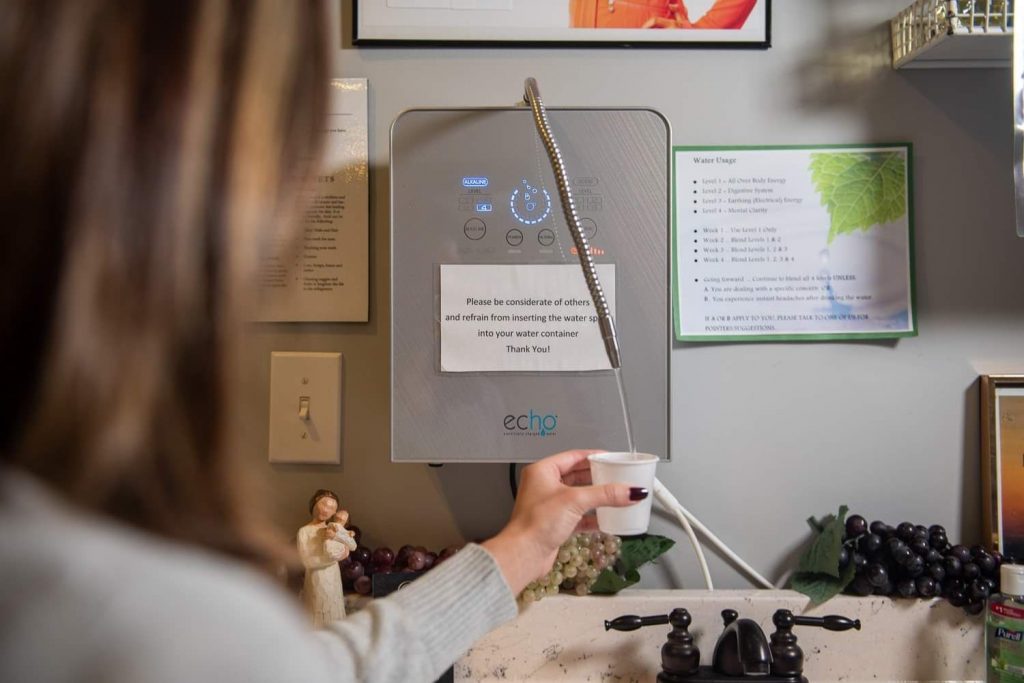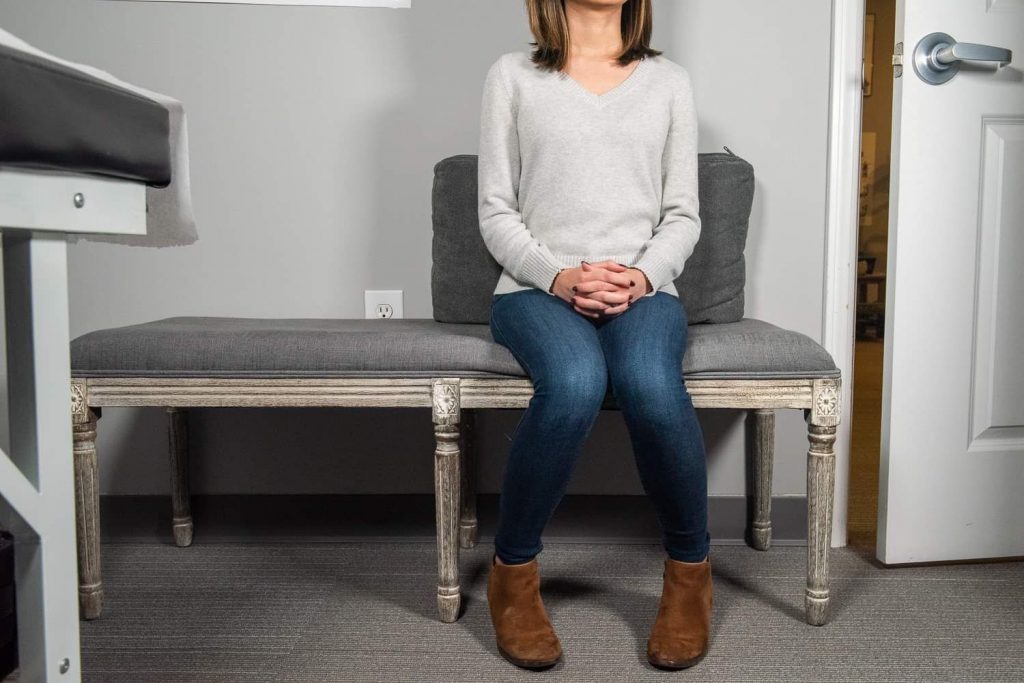How Can Alkaline Water Affect Bladder Health?
Alkaline refers to the pH level of the water. The pH level measures how acidic or alkaline a substance is on a scale of 0-14. For example, lemon juice (pH 2) and vinegar (pH 3) are both very acidic, while baking soda (8-9 pH) and milk of magnesia (10-11 pH) are both very alkaline. At pH 8-9, alkaline water has a higher pH than regular drinking water, which is around 7. Alkaline water can have benefits such as:
- Weight Loss
- Better Hydration
- Increased Athletic Performance
- Increased Energy
- Improved Clarity
- Boosted Immune System
- Promoted Healing and Longevity

There have been many studies that have found that alkaline water can be extremely effective in decreasing acid reflux by inactivating the enzyme pepsin. Alkaline water can also reduce the blood viscosity, allowing the blood to flow through the body with more ease after an intense workout.
Drinking more water, especially alkaline water, can help people who struggle with urinary incontinence. One source states,
“Drinking more water may actually help and does not exasperate the problem. Your body must have water to function properly and drinking less of it can irritate the bladder and increase urination frequency. Water is pure and your body uses it to flush out excess amounts of acid and bacteria. Sipping water all day long is a good habit that you can try to help your incontinence to improve.”
– https://freedrinkingwater.com/water_health/incontinence-treatment-drinking-filtered-water.htm

Alkaline water can also accelerate the excretion of melamine, preventing the accumulation in the bladder that can cause stones. Low urine pH can indicate metabolic syndrome, manifesting in symptoms such as kidney stones, high cholesterol, unstable and high blood sugar, unstable and high blood pressure, weight problems, and more. Drinking alkaline water can keep you hydrated, increase the pH of your urine, and keep infection-causing bacteria low.
According to the National Association for Continence:
- An estimated 12.2 million adults have urge incontinence
- An estimated 17 million adults in the US have daily Urinary Incontinence, and a further 33 million also have the overlapping condition, Overactive Bladder
- Approximately 1 out of 3 women over the age of 45, and 1 out of every 2 women over 65, have stress urinary incontinence, affecting 15 million women
- OAB and UI are about twice as frequently occurring in women as in men.
At His Therapy Wellness Center, we want to help anyone suffering from urinary and bowel urgency and incontinence, and any other pelvic health issues. Please let us know how we can help improve your health concerns by giving us a call at 864-534-1780, emailing us at office@histherapy.net , or visiting resources on our website www.histherapy.net. We hope you have a blessed day!
Sources:
- https://www.healthline.com/health/food-nutrition/alkaline-water-benefits-risks#benefits
- https://freedrinkingwater.com/water_health/incontinence-treatment-drinking-filtered-water.htm
- https://www.news-medical.net/health/Health-Benefits-of-Alkaline-Water.aspx
- https://www.medicalnewstoday.com/articles/313681#what-is-alkaline-water
- https://www.tyentusa.com/blog/alkaline-water-and-urine/
- https://www.nafc.org/
